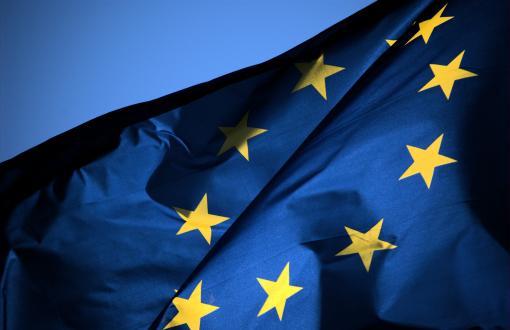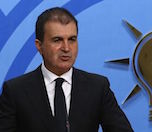EU Turkey Progress Report was released today. The report covering the dates between October 2014 and September 2015 said, "Reforms have slowed down due to affect of procrastinated elections". Increase in political polarization has been drawn attention to in the report.
In the summary section of the report, it is stated that President Recep Tayyip Erdoğan is still dealing with both domestic and international politics, which draws criticism as to going over the limits of his Constitutional power.
Besides, it is emphasized that fight against corruption remains insufficient and corruption widely continues.
Resolution process*
The report stating that resolution process hindered in resolution of Kurdish question, government intensely retaliated violence of Kurdistan Workers' Party (PKK) has stated "Resuming peace process is an emergent necessity".
"Authorities have initiated a militaristic security campaign against PKK within the scope of fight against terrorism. Kurdish question on which positive steps taken hindered".
It is also stated in the report that a prompt and transparent investigation should be conducted as to Ankara bombing occurred on October 10.
Judicial independence warning
The report stated that it was contradicted with European standards in terms of supremacy of law, freedom of expression and freedom of organization.
"Civil society is still active and continues to increasingly involve in public sphere but obstacles before freedom of organization are worrying.
"While judicial independence and separation of powers principles are shaken, judges and prosecutors are under strong political pressure. The government's struggle with alleged 'parallel structure'** within state has been harmful to judicial independence".
Rights of Women and LGBTİ
In the report which expressed that comprehensive adaptations required in laws as to fight against discrimination, it was stated that rights of women, children, and LGBTİ should be effectively ensured.
Freedom of expression and broadcasting bans
"Broadcasting bans regarding sensitive issues such as Ankara and Suruç attacks repeated frequently.
"Penalties against critical journalists, legists, and social media users against government and government officials are being widely exercised.
"Blocking websites over or without court order persists. Turkey is the country which files most application to Twitter to delete content or suspend accounts".
Human rights, refugees
"Constitution of Turkey ensures basic rights and human rights. In practice the situation has relatively improved in the recent years. However, basic lacks remain as they are".
The report expressed that rights are not adapted in accordance with European Court of Human Rights rules.
Turkey faced increasing number of refugees last year because of the situation in Syria and Iraq. Turkey with 2 million Syrians is the country which hosts the largest number of refugees. It is a huge difficulty for Turkey to deal with such a large number. The country has spent 6.7 billions of euros so far. (AS/TK)
* Solution process also known as the Kurdish–Turkish peace process, is an ongoing peace process, which aims to resolve the Kurdish–Turkish conflict. The conflict has been ongoing since 1984 and resulted in some 40,000-100,000 mortal casualties and great economic losses for Turkey as well as high damage to the Kurdish population. Though there was a unilateral cease-fire between 1999 and 2004, the sides failed to gain understanding and the conflict became increasingly violent. The 2013 truce was working until September 2014, when it ended due to spillover of the Syrian Civil War.
** The Gülen movement is a transnational religious and social movement led by US-based Turkish preacher Fethullah Gülen. The movement The Turkish Authorities refer to the movement as the Fethullah Gülen Terrorist Organization (FETO) due to charges of wiretapping high-ranking authorities and establishing a parallel state by means of infiltrating important state institutions such as judiciary, security deparment, and media.
Click here to read the article in Turkish






